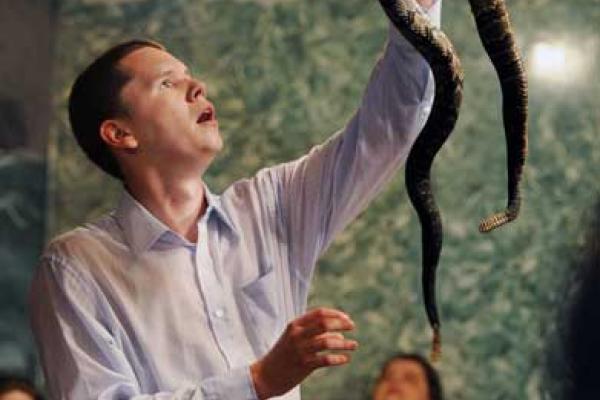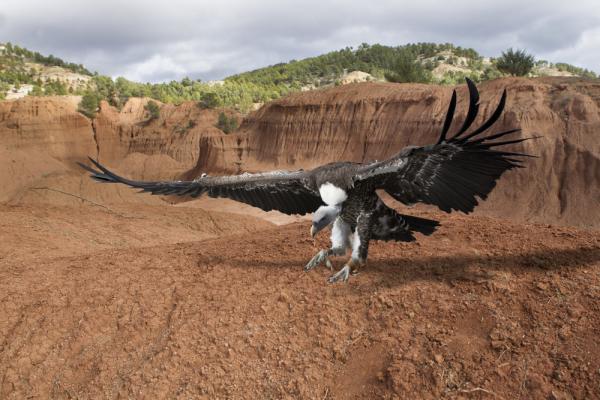Editor’s Note: This post contains two of many testimonies given at an Environmental Protection Agency listening session at EPA headquarters in Washington, D.C. The EPA held sessions in 11 regional offices across the country to allow the public to comment on the agency’s plans to begin regulating carbon dioxide emissions — one of the heat-trapping pollutants that contributes to climate change — from existing coal and natural gas-fired power plants. The public was invited to share up to three minutes of spoken testimony to an EPA panel for the agency’s consideration.
My name is Dr. Jalonne L. White-Newsome and I am a federal policy analyst at WE ACT for Environmental Justice, a 25-year-old community based environmental justice organization based in Harlem, N.Y. However, I work out of our Washington, D.C. office, mostly engaging in federal policy. Although I am in a different location, WE ACT D.C. has the same mission: to build healthy communities by insuring all voices help shape environmental policy and practices so that they are fair.
As a public health researcher who has seen the impacts of temperature, air pollution, and climate changes on urban-dwelling seniors in low income communities of color, I am clear about the need for and the importance of the testimony that I, and hopefully other environmental justice organizations, will offer here today. While three minutes is not a lot of time, I do have a couple of "calls to action" to uplift as you continue your work:
- Recognize the deficiency.
- Recognize the cumulative impacts.
As President Obama has pointed out, the climate issue is not only a technical one. In his words, “We have a moral obligation to future generations to leave them a planet that is not polluted and damaged.” We in the faith community would, of course, agree. But it is not only future generations that will bear the impacts of climate change. They are being felt now, most intensely by those populations around the world who are least able to cope with them. We must act with great conviction and haste to move toward solutions.
The central principle of the Bahá'í Faith is the oneness of humankind. This principle has deep implications for policy in many arenas. It should guide us to seek solutions that are equitable and just, treating all people as members of one human family. I believe that to be effective, the carbon standards established by EPA over the next several months must be animated by this foundational principle.
(Editors Note: Faith, immigrant rights, and labor leaders launched the "Fast for Families: A Call for Immigration Reform and Citizenship," Nov. 12, taking place on the National Mall. Leaders and immigrant members of the community are fasting every day and night, abstaining from all food — except water — to move the hearts of members of Congress to pass immigration reform with a path to citizenship. This post is composed of updates from Lisa Sharon Harper, director of mobilizing for Sojourners, as she experiences the fast.)
Eleven national leaders marked this as the first day of a 30-day rolling fast for families — a call for immigration reform and a path to citizenship. The fasters and other leaders of the civil rights movement, including Julian Bond (civil rights veteran), Rev. Jim Wallis (Sojourners) and Wade Henderson (Leadership Conference on Civil Rights), walked into that tent and behind the podium.
One after another, the fasters stood before the podium — Sister Simone Campbell, Dr. Barbara Williams-Skinner, Eliseo Medina, Dae Joong Yoon—and offered testimony. This is why we are fasting. We are fasting because we cannot wait any longer. We are fasting because we stand with the 11 million people and their families who cannot wait for congress to get itself together for the pain and suffering in their families to end. We are fasting because whether we are immigrants who came here voluntarily in the last century or our ancestors were brought here in chains 200 years ago, we are fasting America a better place for all.
In the United States, more than 1 in 3 women (and 1 in 4 men) havereportedly experienced sexual assault, physical violence or stalking by an intimate partner during their lifetime.
These are not numbers that disappears when you walk in to a church. Christian women are subject to sexual and gender-based violence, too – but when is the last time you heard about this issue in a church?
Talking about the pain and fear of intimate partner abuse can seem daunting, but there are resources to help faith communities get started. On Sunday, Nov. 24, faith communities have an opportunity to speak out against sexual and gender-based violence in the aptly named Speak Out Sunday.
On a Greenwich Village street where male prostitutes seeking customers shout out their dimensions, I walked past an open but empty church on my way to the subway.
In times past, flocking to church on Sunday morning was a beloved family routine, even here in bad old Gotham. Now they’re trying nontraditional worship on Sunday evenings.
It’s a struggle, both here and elsewhere in the 21st-century Christian world. Buildings with “beautiful stones and gifts dedicated to God,” as Luke described the temple in ancient Jerusalem, are falling into disuse and disrepair — not because Caesar attacked and took revenge on an alien religion, but because the world changed and gathering weekly in “Gothic piles” no longer seems necessary for finding faith.
A Tennessee pastor’s dangerous spiritual practices made him a star of a reality TV series.
Now they may make him a religious liberty crusader.
Officials from the Tennessee Wildlife Resources Agency raided the Tabernacle Church of God in LaFollete last Thursday and seized 53 venomous snakes — including timber rattlesnakes, copperheads, and several exotic breeds.
They cited the Rev. Andrew Hamblin, the church’s pastor and co-star of the National Geographic series Snake Salvation, and plan to charge him with 53 count of violating a state ban on possessing venomous snakes at a court hearing on Friday. Each count carries a maximum sentence of one year in jail.
The Vatican said it would display for the first time bones believed to be the mortal remains of St. Peter, the leader of Jesus’ 12 apostles, to mark the end of the Year of Faith on Nov. 24.
Archbishop Rino Fisichella, president of the Pontifical Council for Promoting New Evangelization, wrote in Monday’s editions of L’Osservatore Romano, that the Catholic faithful making a pilgrimage to St. Peter’s tomb to mark the end of the Year of Faith will enjoy “the exposition … of the relics traditionally recognized as those of the apostle who gave his life for the Lord on this spot.”
Fisichella was referring to the long-held belief that Peter was crucified upside down and died in either A.D. 64 or 67 on the spot now marked by the Clementine Chapel inside the basilica that bears his name.
Among the largest phenomena that have arisen from foreign debt crises and loan repayment structures are predatory hedge funds, known as vulture funds. Simply said, vulture funds intentionally target the debt of financially distressed nations. They monitor the likelihood of a country’s ability to gain international debt relief. Right before the country receives aid, vulture funds buy up the nation’s debt. Then, they call in their debt bonds, suing the country once it receives resources that help debt cancellation. The result is that vulture funds, after buying distressed debt for pennies on the dollar, turn around and sue to recover up to ten times the purchase price.
Because vulture funds locate themselves in such offshore tax havens as the Cayman Islands, the companies or individuals remain a secret. Many times, there is no source of reliable information on who actually owns them, making accountability impossible.
As the U.S. Catholic bishops began their annual fall meeting on Monday, they were directly challenged by Pope Francis’ personal representative to be pastors and not ideologues — the first step of what could be a laborious process of reshaping the hierarchy to meet the pope’s dramatic shift in priorities.
“The Holy Father wants bishops in tune with their people,” Archbishop Carlo Maria Vigano, the Vatican ambassador to the U.S., told the more than 250 American churchmen as he recounted a personal meeting in June with Francis.
The pontiff, he added, “made a special point of saying that he wants ‘pastoral’ bishops, not bishops who profess or follow a particular ideology,” Vigano said. That message was seen as an implicit rebuke to the conservative-tinged activism of the bishops’ conference in recent years.
Almost since his election in March, Francis has signaled that he wants the church to strike a “new balance” by focusing on the poor and on social justice concerns and not overemphasizing opposition to hot-button topics like abortion and contraception and gay marriage — the signature issues of the U.S. bishops lately.
Thinking back, I haven’t always been great about getting my car “winterized.” I grew up in fairly temperate Kansas, and mostly parked in a garage at home. There didn’t seem to be too great a chance of the car’s malfunctioning on me, and I was often more interested in where the car was getting me than whether it was in prime shape. I knew the car would never be perfect, but by and large, it seemed functional.
Then I moved to Chicago, where the winters were colder, the streets harder, and a garage a rare luxury. Suddenly winterizing seemed a bit more critical.
Today I am (by virtue of my baptism and in a way specifically called for by my ordination vows) partly in the business of serving as a prophet. Oh, I don’t rate myself as too great of one, but I do think that God has made me a part of that work. I may not be all of Christ’s Body, but I’m a piece of it. So prophecy and transformation are some of my duties too. And the season of Advent has me thinking a bit about whether I do enough to “winterize” my prophecy.








